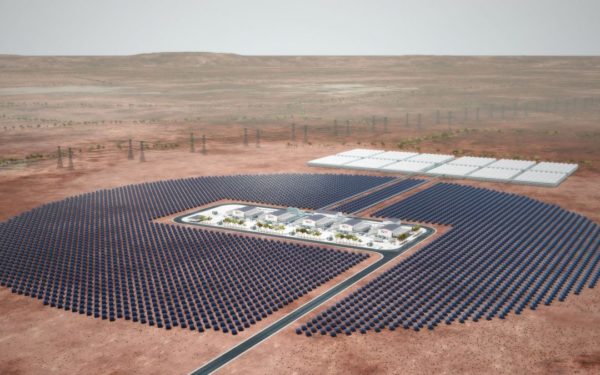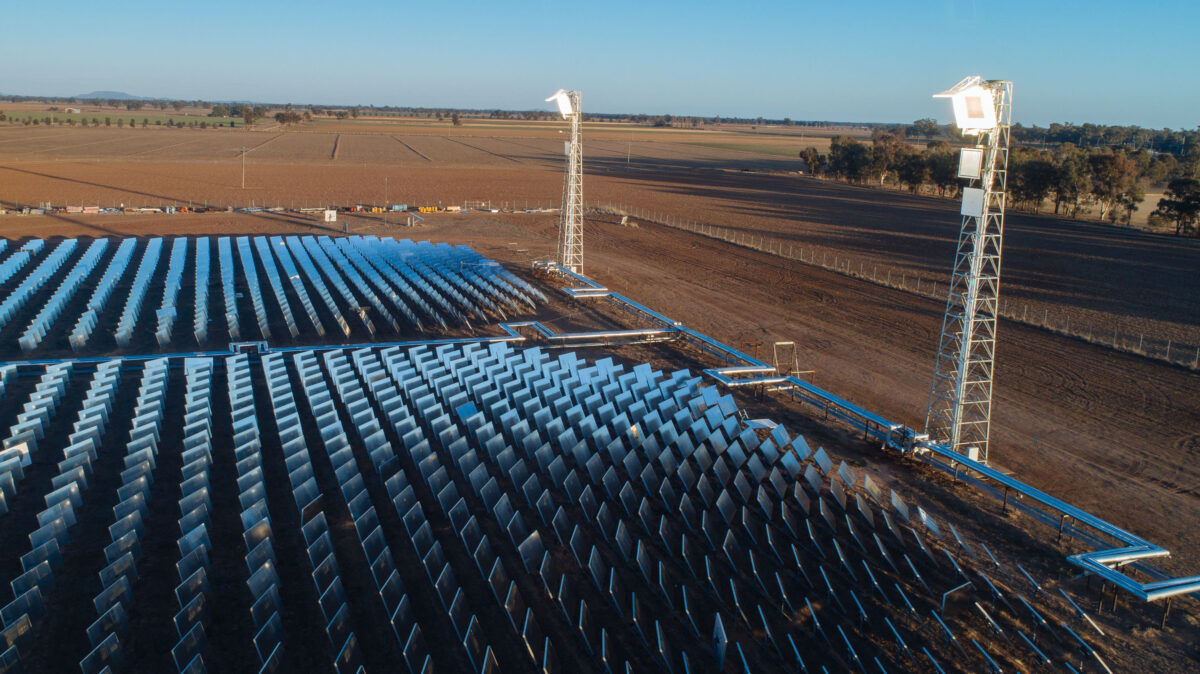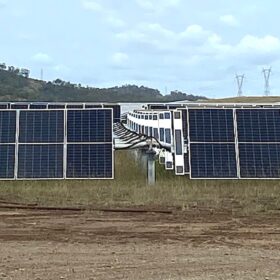In a deal worth $2.5 million, Australian renewable energy developer Vast Solar will acquire a 50% stake in Silicon Aurora, a subsidiary of Adelaide-based energy storage specialist 1414 Degrees (14D) and will jointly develop the estimated $750 million Aurora Energy Project featuring solar PV coupled with a concentrated solar thermal power (CSP) plant and battery energy storage.
The Aurora project, first floated by United States developer SolarReserve more than five years ago, has already secured state government approval for the development of a 70 MW solar PV array and 150 MW concentrated solar thermal plant coupled with up to 140 MW/280 MWh battery energy storage system (BESS), as well as connection to the adjacent 275 kV transmission line.
Under the terms of the joint venture, Vast Solar will contribute 50% of all development costs associated with the development of the first phase of the Aurora project.
The focus for Stage 1 will be on the establishment of a connection agreement and initial development of a 140 MW battery with up to two hours of storage, with the final investment decision for procurement and construction targeted for early 2023.
In addition to co-developing the BESS, the agreement provides for further development of Aurora in future stages, including allowing for 14D to independently progress a pilot of its Thermal Energy Storage System (TESS), and access rights within the precinct for Vast Solar to independently progress a CSP project in the area.
Vast Solar chief executive officer Craig Wood said the agreement is the next step in the company’s plans to build a 20MW CSP plant near Port Augusta.
The Sydney-based company last month announced it had secured up to $110 million in concessional finance from the federal government to develop the CSP facility which would produce dispatchable renewable electricity “available on demand for eight hours or more”.

Image: 1414 Degrees
Wood said he expects the technology to play a key role in Australia’s transition to a renewables-dominated future with rapid investment in renewable dispatchable energy is an urgent priority and is the only sustainable solution to Australia’s energy crisis in the medium term.
“As per recent comments from the federal energy minister and AEMO, dispatchable renewable energy capacity is what is required to curb the high prices currently being experienced in Australian energy markets,” he said.
“We are excited to be working with the federal government and ARENA (Australian Renewable Energy Agency) to finalise funding for the project, and with state and local governments and other partners to expedite the Aurora project.”
Vast Solar, which is also developing a 50MW hybrid solar thermal project at Mount Isa in Queensland, said the South Australian project will feature the same modular tower CSP technology that the company has deployed at Jemalong in New South Wales (NSW). The 1 MW pilot plant, which was constructed adjacent to a 50MW solar PV project, has been delivering electricity to the grid since early 2018.
Unlike traditional CSP technology which uses molten salt both as a heat transfer and for storage, Vast Solar has developed technology that uses sodium for heat transfer and molten salt for on-demand storage, both of which create steam to drive a turbine. The technology allows plants to be configured with 4-16 hours of storage and generators of up to 500 MW.
14D chair Tony Sacre welcomed Vast Solar’s involvement with the Aurora project, saying the companies share a vision for the development as a long-term renewable energy project in Port Augusta.
“Vast Solar is a highly complementary Australian partner for 1414 Degrees and we welcome their addition as joint owners of Silicon Aurora,” he said. “We are now in an excellent position to continue with the development of the Aurora project.”
This content is protected by copyright and may not be reused. If you want to cooperate with us and would like to reuse some of our content, please contact: editors@pv-magazine.com.









By submitting this form you agree to pv magazine using your data for the purposes of publishing your comment.
Your personal data will only be disclosed or otherwise transmitted to third parties for the purposes of spam filtering or if this is necessary for technical maintenance of the website. Any other transfer to third parties will not take place unless this is justified on the basis of applicable data protection regulations or if pv magazine is legally obliged to do so.
You may revoke this consent at any time with effect for the future, in which case your personal data will be deleted immediately. Otherwise, your data will be deleted if pv magazine has processed your request or the purpose of data storage is fulfilled.
Further information on data privacy can be found in our Data Protection Policy.